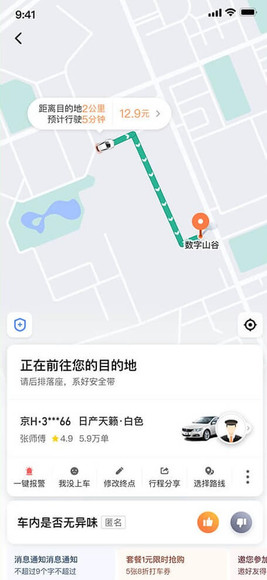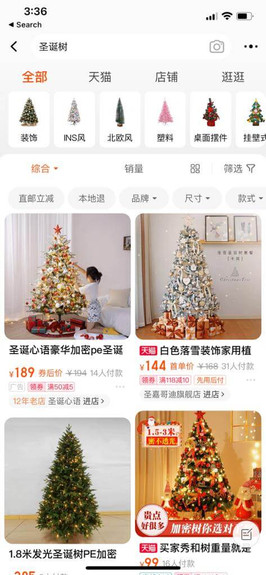Hangzhou is one of the safest, cleanest, most convenient places on earth. Even if you don’t speak Mandarin you can easily find your way around through the help of couple of apps.
When I first arrived to China I really struggled. I had no idea where to buy what. I could not find a cashier in a multi-story supermarket, let alone tell the difference between flour and corn starch.
One of the small stores nearby our home sold fruits, while the big supermarket a bit further away sold everything else. In the morning I would buy fruits and vegetables and then go to supermarket to buy water. In the evening I would go to supermarket again, to buy meat, detergents, milk, ect... Why did I go shopping in rounds? Because I could not carry all at once. I did not have a car (or a driving license) and my husband was working during the day, and often traveled out of the city.
It was August, the outside temperature was around 40 degrees Celsius. It was so hot and humid that when I would open the door to step out of the apartment, I felt like I have been hit by a wall. I would get out and got drenched in sweat in less than 10 seconds. It didn’t help that I was 6 months pregnant.
Back then I did not know you could order any thing online and have it delivered within minutes.
If I wanted to go somewhere by metro, I would carefully take photos of subway station names, shops and other landmarks on my way to make sure I can find my way back to the same station and same entrance. No, I could not use Google Maps because of ban China imposed to some of the international websites.
Back than I did not know you can use VPN and virtually change your phone location thus acquiring access to international content on Instagram or Google, from China.
This daily struggle changed one morning on a bus stop outside my compound.
I met a man who changed my life in China. His name is Jürgen.
Jürgen and his family were in China for two years. He took it upon himself to download 5 apps to my phone and to explain which one is used for what in less than 5 minutes. None of them required VPN.
So here they are, the 5 apps that I used every single day during our 4 years in China:
1. Baidu Translate (百度翻译) - best translation app for Chinese language.
2. Da Zhong Dian Ping (大众点评) – an app you can use to buy everything from food to medicines, see reviews and recommendations, buy tickets for the cinema or book wedding photographer.
3. Apple Maps (苹果地图) – map available in English and Mandarin that works without VPN.
1. Baidu Translate
Baidu Translate offers better translation than any other app I used. Chinese language can be tricky. Some commonly used phrases refer to historical events or figures, and some of the Chinese proverbs (also commonly used) can be understood only if you know the story behind. To sum up, even if you can understand all the words in a sentence it does not mean you will understand the meaning. However, this app is developed by a team who understand the nuances of the language really well. The app offers image translation which is incredibly useful for people not familiar with Chinese characters.
2. Da Zhong Dian Ping
Da Zhong Dian Ping (大众点评) is the best all-in-one application I have ever used. You can use it to have groceries, medicines, flowers, meals and more delivered to your doorstep. You can use it to search for tourist attractions to visit, filter them according to the distance, part of the city, price, type, you name it. You can use it to look at restaurants' menus, to book accommodation or an appointment with the hairdresser, buy tickets for the cinema/theater, etc...
Almost every service, product or a place comes with photos and reviews which makes it easy to regardless of the language one speaks.
I used this app often to search for local ingredients. I would click on a random shop and go through its assortment to discover fruits, vegetables, noodles or tofu products I have never tried (or seen) before.
Most of the times it was a blast. Once or twice, it wasn’t - like when I ordered goose blood thinking it was goose liver, or when I ordered shrimps. They were delivered alive, moving in the plastic bag next to the apples.
3. Apple Maps
There are other maps that work well without VPN, but all of them (according to my knowledge) are only available in Mandarin, not in English. From Apple Maps you can click on a certain place and pull up ratings and photos from Da Zhong Dian Ping, which means you will have a vast collection of photos and numerous reviews to help you make a decision whether to visit a place or not.
The locations are up-to-date and accurate. As soon as a new places opens up, it is added to the map.
Traffic jam and estimated time to the destination are precise.
The app has built-in metro, bus, car and rent-a-bike information, so you can directly hail a cab, check the bus schedule or look for metro line.
It is also very useful as a guide while driving because it zooms in the details of an intersection if it estimates that there is a possibility that you might make a wrong turn. This is particularly useful in China, where roads are linked together in complicated multi-level networks while street signs are written in Mandarin.
4. Didi
This ride hailing application is available in English. It is very similar to Uber. It is very convenient, you can place a pin to your pick-up/drop-off location, reserve a car in advance, choose the size (7-seater for example), share the ride, etc… The route is marked throughout the journey, you pay directly from the app, etc... When it comes to safety features, you can switch on a camera to record the ride (each car has one installed) and in case of danger you can notify police by click on the screen. This option is even automatically offered in case the driver is deviating from the recommended route. All you have to do is click “YES – notify police”.
The only downside is that drivers often call to confirm the location. If you cannot speak Mandarin (even if you can) do not answer the phone, most of them will cancel the ride if you are unable to provide clear instructions. Just send use the app built-in messenger to send a message in English (the app has translator built-in) that your GPS location is accurate. He/she will show up in a matter of minutes.
5. Taobao
Taobao is among the things I miss the most about China. You can find everything on Taobao if you know how to search. From coffee beans from Honduras to yellow Pikachu socks. If you would like to return the product, someone will come to collect it and you will receive a full refund. No questions asked. Reviews are available for every product/service; you can track the number of units sold in the last month to see how popular the product is. The customer service is usually available 24/7.
The algorithm proactively suggests products you may be interested in, based on your search and buying history. It allows search by photos, which means that you can take a photo of a product you like, upload it and the app will come up with dozens of same or similar products at different prices. You can search for complete outfits (boots to earrings), complete room interior designs and more. It is amazing.
In order to pay for anything through one of the applications listed above, you will need Alipay or WeChat account where you will link your card. I have never been able to link an international card, even though it should be possible. You can give it a try, it supposedly supports cards issued by more than 400 banks around the world.
Additionally, I am listing two more apps that are a must for those living in China.
6. Alipay
Alipay (支付宝) is mostly used for mobile payment and money transfer. It can be used for numerous other purposes too: to buy train tickets, top up phone credit, pay for utilities, order food, buy cinema tickets, etc…
7. WeChat
WeChat (微信), the supper app is used for messaging, news, payment and everything else you can imagine. This app combines all the apps from the above in one form or another.
However, it is primarily used for communication. In China you don’t share your phone number, you share your WeChat ID. Businesses do not share their webpage; they share their WeChat Official Account. If you need something, you don’t download an app, you search for a WeChat Mini Program. You can pay for utilities, movie tickets, book a manicure, enroll kids to school, play games, go shopping and much much more using WeChat only.


































Comments